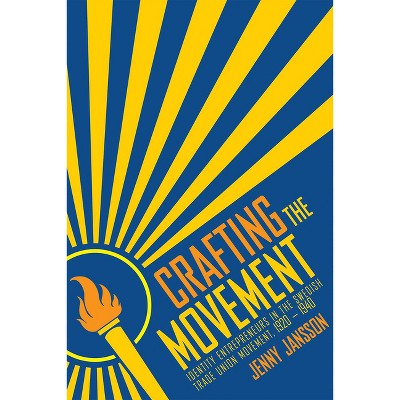Sponsored

Despotism on Demand - by Alex J Wood (Paperback)
In Stock
Sponsored
About this item
Highlights
- Despotism on Demand draws attention to the impact of flexible scheduling on managerial power and workplace control.
- About the Author: Alex J. Wood is Lecturer in the Sociology of Work at the University of Birmingham and a Research Associate at the Oxford Internet Institute, University of Oxford.
- 192 Pages
- Political Science, Labor & Industrial Relations
Description
About the Book
"Experiences of paid work have shifted radically over the last 30 years with the rise of flexible scheduling and the gig economy. In this book, Alex Wood attempts to provide an updated account of power in this changing economy. With in-depth case studies of two of the largest retail businesses in the world, one in the United States and one in the United Kingdom, he sheds light on a new despotic mode of domination in which managers discipline workers through reducing the quantity, stability, and sociability of their hours. In turn workers must continually strive to maintain their manager's favor in the hope of receiving 'schedule gifts', the granting of additional hours and the rearranging of schedules. Workers experience the operation of flexible scheduling as acts of kindness. As such, schedule gifts bind workers to their managers' interests through feelings of gratitude and moral obligation. In this way precarious scheduling gives rise to what is a new regime of power for the on-demand economy"--Book Synopsis
Despotism on Demand draws attention to the impact of flexible scheduling on managerial power and workplace control. When we understand paid work as a power relationship, argues Alex J. Wood, we see how the spread of precarious scheduling constitutes flexible despotism; a novel regime of control within the workplace.
Wood believes that flexible despotism represents a new domain of inequality, in which the postindustrial working class increasingly suffers a scheduling nightmare. By investigating two of the largest retailers in the world he uncovers how control in the contemporary "flexible firm" is achieved through the insidious combination of "flexible discipline" and "schedule gifts." Flexible discipline provides managers with an arbitrary means by which to punish workers, but flexible scheduling also requires workers to actively win favor with managers in order to receive "schedule gifts" more or better hours. Wood concludes that the centrality of precarious scheduling to control means that for those at the bottom of the postindustrial labor market the future of work will increasingly be one of flexible despotism.
Review Quotes
Despotism on Demand comes with the well-deserved praise of two seminal scholars in the field of industrial sociology. Wood presents an exquisite study of today's flexible workplace.
-- "The Marx and Philosophy Review of Books"This important book adds significantly to the ongoing debate on the changing features of Carter Goodrich's "frontier of control". Drawing upon participant research undertaken in 2013 in and around supermarkets in North London, San Francisco, and Los Angeles, Alex Wood explores the details of power relations facing the "post-industrial working class".
-- "ILR Review"This is an eminently readable, well-written book.
-- "New Technology, Work, and Employment"About the Author
Alex J. Wood is Lecturer in the Sociology of Work at the University of Birmingham and a Research Associate at the Oxford Internet Institute, University of Oxford. Follow him on X @tom_swing.
Shipping details
Return details
Frequently bought together
Trending Non-Fiction

















